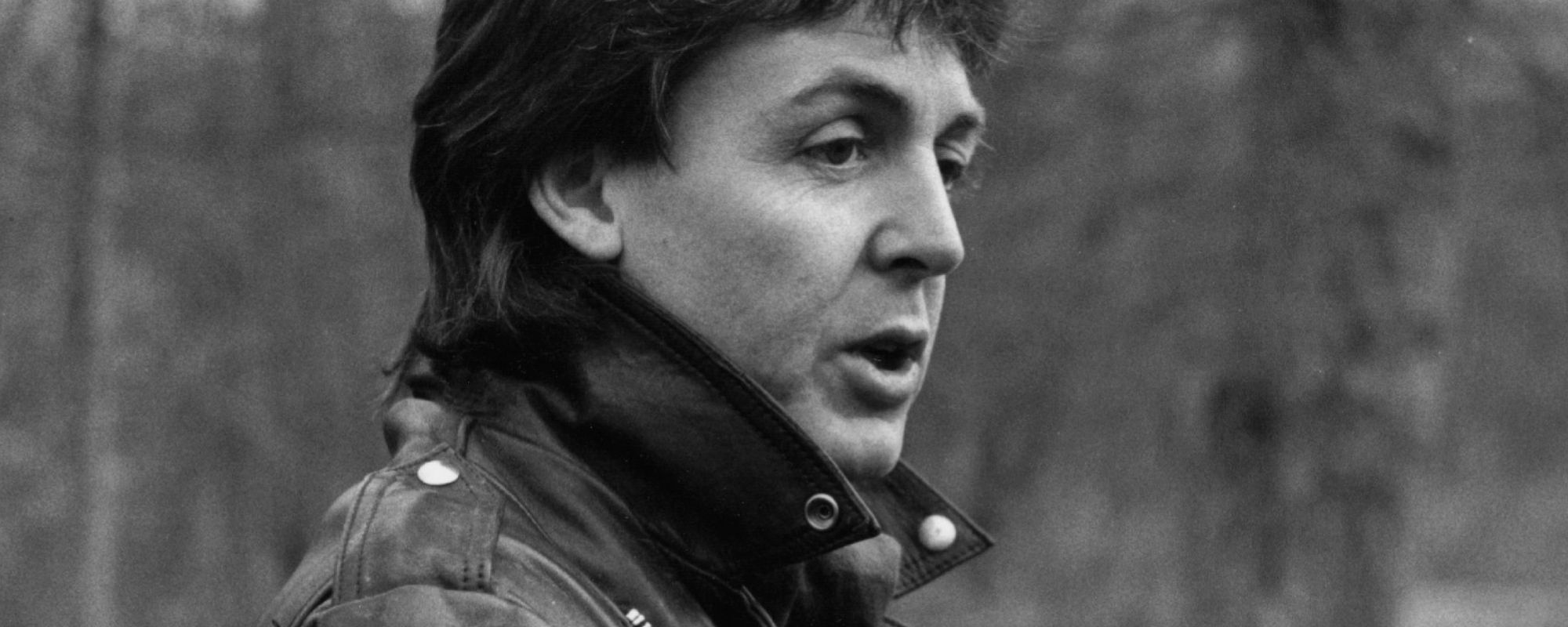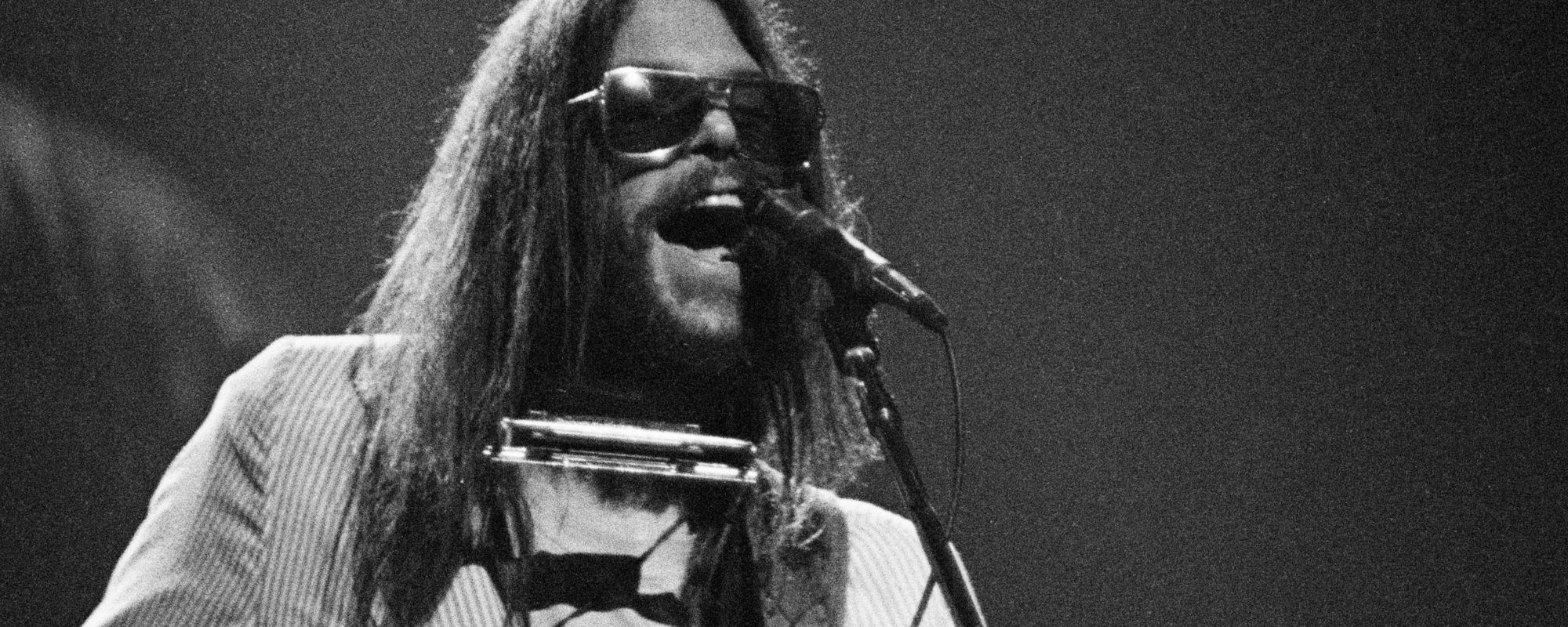No one can accuse the Top-40 radio stations of the mid-1970s of not being eclectic. Take, for example, the Billboard Hot 100 from March 15, 1975. The Doobie Brothers’ uncharacteristic foray into country music “Black Water” topped the chart, and artists as diverse as Frankie Valli, Labelle, Styx, America, and the disco group B.T. Express each had a song in the Top 10. Down at No. 87, a German group entered the chart with its first-ever single, and it was unlike anything else on the radio.
Videos by American Songwriter
“Autobahn” by Kraftwerk wouldn’t wither in obscurity in the chart’s basement. The song would spend 10 weeks on the Hot 100, reaching as high as No. 25. The same chart contained other unlikely hits, like Benny Bell’s novelty song “Shaving Cream” and Carl Douglas’ “Dance the Kung Fu.” Whereas Bell and Douglas would never place a new song or album on a Billboard chart again, Kraftwerk would continue to chart into the 2000s. “Autobahn” introduced a new template for pop music and it catalyzed future work that would transform music for decades to come.
“The Phones Went Crazy”
By the time “Autobahn” was released in the U.S. in early 1975, Kraftwerk had already released a trio of albums in West Germany. They consisted of the duo of Ralf Hütter and Florian Schneider for those albums, but for their fourth album Autobahn, percussionist Wolfgang Flür and violinist/guitarist Klaus Röder joined the group. Initially the quartet’s first album together went unreleased in the U.S., and even in West Germany it didn’t receive much notice, much like its predecessor Ralf and Florian.
Just because Kraftwerk’s albums were not released in the U.S. didn’t mean they never received airplay on this side of the Atlantic. Triad Radio, a Chicago-based radio station with a free-form format, played tracks from each of Kraftwerk’s first three albums. Upon receiving a test pressing of Autobahn, they played the title track. Bear in mind that this was not the three-and-a-half minute version of the song that eventually became popular nationwide. Triad Radio played the original version, which was nearly 23 minutes long and covered all of Side 1. Saul Smaizys, the station’s program director at the time, told the Chicago Reader in 2020, “When we put that on, the phones went crazy.”
A Distinct Musical Taste on Driving
“Autobahn” is meant to evoke the sights and sounds of driving on the German expressway from Düsseldorf to Hamburg. It’s a distinctly German take on the driving experience—very different from American car-related songs like The Beach Boys’ “Fun, Fun, Fun” or The Modern Lovers’ “Roadrunner” (recorded prior to “Autobahn,” but released more than a year later). Part of the appeal of “Autobahn” may have been the similarity of the repeated lyric Wir fahren, fahren, fahren auf der Autobahn to The Beach Boys’ refrain of Fun, fun, fun. But the cool, futuristic tones of Kraftwerk’s synthesizers put a novel spin on songs about driving and on pop music more generally.
Despite the strangeness of Kraftwerk’s soundscape to American ears, there was eventually enough demand for the album as an import that Vertigo Records released a domestic version of Autobahn and an edited version of the single in January 1975. By early February, the album debuted on the Billboard 200, and three months later, it peaked at No. 5. The single would follow the album onto the charts shortly thereafter.
Kraftwerk’s Lasting Influence
While Autobahn is far and away Kraftwerk’s highest-ranking album in the U.S., it was hardly a one-off success for the band. Still, Kraftwerk’s influence was felt almost immediately upon “Autobahn” reaching the charts in the U.S. and several other countries. David Bowie recorded Station to Station in the fall of 1975, and one can hear echoes of Kraftwerk in the early ambient moments of the title track. Bowie admired Kraftwerk to the degree of inviting them to open for him on his Station to Station Tour. They did not support Bowie on that tour, but they continued to influence his work—particularly on his Berlin trilogy of albums (Low, “Heroes,” and Lodger).
In the late ‘70s and early ‘80s, other artists not only followed Bowie by incorporating elements of Kraftwerk’s sound into their own work, but made synthesizers an even more central part of the mix. The New Wave and New Romantic movements brought synths to the forefront while relegating guitars to a lesser role, and songs like Gary Numan’s “Cars,” Depeche Mode’s “Just Can’t Get Enough,” and The Human League’s “Don’t You Want Me” eschewed guitars altogether (aside from the presence of bass on “Cars”).
Kraftwerk didn’t just open the door to synth-based pop music. Their “sprechsingen,” or speech-sing style of vocal delivery influenced future rappers, and their use of synthesizers and sequencers shaped the sound of hip-hop. Afrika Bambaataa’s seminal hip-hop classic “Planet Rock” was intended as a tribute to Kraftwerk, and the song samples a keyboard riff from their 1977 hit “Trans-Europe Express” and the beat from their 1981 single “Numbers.”
As varied as the landscape of Top-40 radio was in 1975, “Autobahn” was still an unusual inclusion on the pop charts, and even later releases like “Trans-Europe Express” and “Numbers” were ahead of their time. It wouldn’t take long for the rest of the music world to catch up to Kraftwerk. The synth- and technology-laden music of today owes a great deal to the German group that improbably charted in the U.S. nearly 50 years ago.
When you purchase through links on our site, we may earn an affiliate commission.
Photo by Mike Coppola/Getty Images













Leave a Reply
Only members can comment. Become a member. Already a member? Log in.